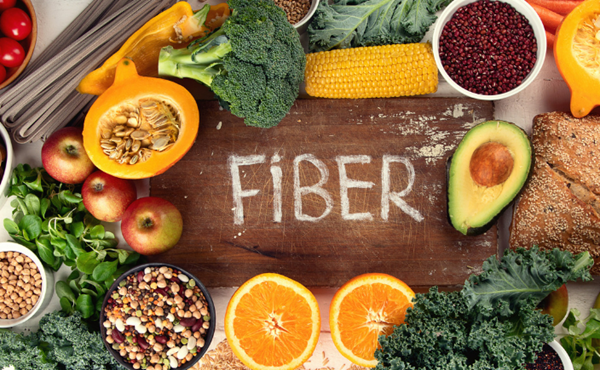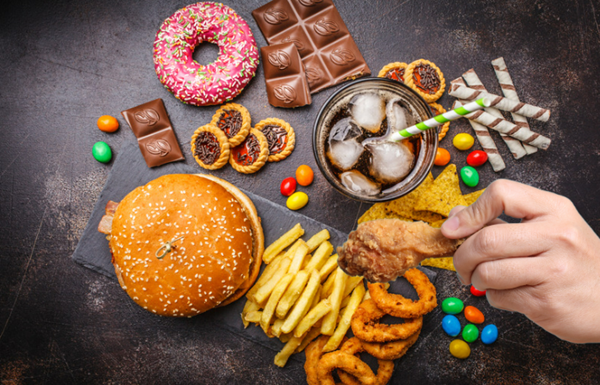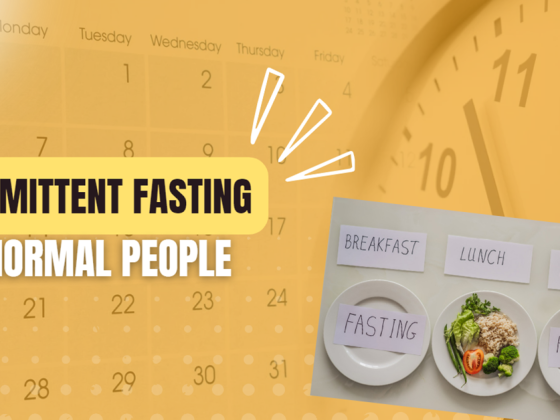We all want to know the answer to the question, How to Lose Belly Fat Without Doing Too Much? I will personally tell you that it is impossible unless you starve yourself like a pro. And losing belly fat is a common goal for many people who want to improve their appearance and health. Belly fat is not only unsightly but also unhealthy. It can increase your risk of various chronic diseases, such as type 2 diabetes, heart disease, and some cancers. But how can you get rid of it for good?
To Lose Belly Fat Is Not An Easy Task
Many people think that doing endless crunches or sit-ups will magically melt away their belly fat. However, this is not true. Spot reduction, or the idea that you can lose fat from a specific area of your body by exercising that area, is a myth. The only way to lose belly fat is to reduce your overall body fat percentage, which requires a combination of diet and exercise.
In this article, we will share some effective tips to help you lose belly fat, backed by scientific studies. We will also discuss the advantages and disadvantages of each tip, so you can make an informed decision on what works best for you.
Tip 1: Eat more soluble fiber

Soluble fiber is a type of fiber that dissolves in water and forms a gel-like substance in your digestive tract. This helps slow down the passage of food and makes you feel fuller for longer. Soluble fiber also helps lower your cholesterol and blood sugar levels, which can prevent fat accumulation around your organs.
Some of the best sources of soluble fiber are fruits, vegetables, legumes, oats, barley, and flaxseeds. Aim to eat at least 25 grams of fiber per day, with at least 10 grams coming from soluble fiber.
Advantages:
- Soluble fiber can help you lose weight by reducing your appetite and calorie intake.
- Soluble fiber can improve your digestive health and prevent constipation.
- Soluble fiber can lower your risk of heart disease, diabetes, and some cancers.
Disadvantages:
- Soluble fiber can cause gas, bloating, and abdominal discomfort if you eat too much or increase your intake too quickly.
- Soluble fiber can interfere with the absorption of some medications, such as antibiotics and blood thinners. You should consult your doctor before increasing your fiber intake if you are taking any medications.
- Soluble fiber can be hard to get from your diet if you are not used to eating high-fiber foods. You may need to supplement with psyllium husk, glucomannan, or other fiber products.
Tip 2: Avoid foods that contain trans fats

Trans fats are artificial fats that are created by adding hydrogen to unsaturated fats, such as soybean oil. They are often used to extend the shelf life and improve the texture of processed foods, such as margarine, baked goods, snacks, and fast food.
Trans fats are very harmful to your health, as they can cause inflammation, insulin resistance, and abdominal fat gain. They can also raise your bad cholesterol (LDL) and lower your good cholesterol (HDL), increasing your risk of heart disease and stroke.
The best way to avoid trans fats is to read the ingredient labels carefully and stay away from products that contain partially hydrogenated oils, which are another name for trans fats. You should also limit your intake of fried foods, as they may contain trans fats from the oil used for frying.
Advantages:
- Avoiding trans fats can help you lose belly fat and improve your overall health.
- Avoiding trans fats can lower your risk of heart disease, stroke, diabetes, and some cancers.
- Avoiding trans fats can improve your blood lipid profile and reduce inflammation.
Disadvantages:
- Avoiding trans fats can be challenging, as they are hidden in many processed foods that are convenient and tasty.
- Avoiding trans fats can limit your food choices and make you feel deprived of your favorite foods.
- Avoiding trans fats can be expensive, as you may need to buy more fresh and organic foods that are free of trans fats.
Tip 3: Moderate your alcohol intake

Alcohol is a source of empty calories that can contribute to weight gain and belly fat. Alcohol can also impair your liver function, which is responsible for metabolizing fat and regulating your blood sugar levels. When your liver is overloaded with alcohol, it can store more fat around your organs and increase your visceral fat.
Moreover, alcohol can stimulate your appetite and make you eat more than you need, especially if you drink before or during meals. Alcohol can also lower your inhibitions and make you choose unhealthy foods that are high in fat, sugar, and salt.
The best way to moderate your alcohol intake is to follow the recommended guidelines, which are no more than one drink per day for women and two drinks per day for men. A drink is defined as 12 ounces of beer, 5 ounces of wine, or 1.5 ounces of liquor. You should also avoid binge drinking, which is consuming more than four drinks for women or five drinks for men on a single occasion.
Advantages:
- Moderating your alcohol intake can help you lose belly fat and prevent liver damage.
- Moderating your alcohol intake can lower your calorie intake and prevent overeating.
- Moderating your alcohol intake can improve your mood, sleep quality, and cognitive function.
Disadvantages:
- Moderating your alcohol intake can be difficult, especially if you are used to drinking more than the recommended amount or have a social or psychological dependence on alcohol.
- Moderating your alcohol intake can make you feel left out or bored in social situations where drinking is common or expected.
- Moderating your alcohol intake can cause withdrawal symptoms, such as headaches, nausea, anxiety, and irritability, if you are a heavy drinker.
Tip 4: Drink plenty of water

Water is essential for your health and hydration. It can also help you lose belly fat by boosting your metabolism, flushing out toxins, and suppressing your appetite. Water can also prevent you from drinking sugary beverages, such as soda, juice, and sports drinks, which can add extra calories and contribute to belly fat.
Some studies suggest that drinking water before meals can help you eat less and lose weight. For example, a 12-week study involving 48 adults found that those who drank 500 milliliters (ml) of water before each meal lost 44% more weight than those who did not (11).
The amount of water you need to drink per day depends on various factors, such as your body weight, activity level, climate, and health conditions. However, a general rule of thumb is to drink at least 2 liters (L) of water per day, or about eight 8-ounce (oz) glasses.
Advantages:
- Drinking water can help you lose belly fat and improve your overall health.
- Drinking water can keep you hydrated and prevent dehydration, which can cause fatigue, headaches, and mood swings.
- Drinking water can improve your skin, digestion, kidney function, and immune system.
Disadvantages:
- Drinking too much water can cause water intoxication, which is a rare but serious condition that occurs when the sodium levels in your blood become too low. This can cause symptoms such as confusion, seizures, and coma. To avoid this, do not drink more than 1 L of water per hour, and pay attention to your thirst and urine color.
- Drinking water can be inconvenient, especially if you do not have access to clean and safe water sources. You may need to carry a water bottle with you or buy bottled water, which can be costly and environmentally unfriendly.
- Drinking water can make you urinate more frequently, which can disrupt your sleep and daily activities.
Tip 5: Follow a high-protein diet

Protein is an important macronutrient that can help you lose belly fat and maintain muscle mass. Protein can increase your metabolism, reduce your appetite, and preserve your muscle tissue, which can burn more calories than fat.
Some studies show that eating more protein can help reduce belly fat. For instance, a 16-week study involving 44 women found that those who ate a high-protein diet (30% of calories from protein) lost more fat, including visceral fat, than those who ate a low-protein diet (15% of calories from protein) (12).
Some of the best sources of protein are lean meats, poultry, fish, eggs, dairy, soy, beans, nuts, and seeds. Aim to eat at least 0.8 g of protein per kilogram (kg) of body weight per day, or about 0.36 g per pound (lb).
Advantages:
- Eating more protein can help you lose belly fat and prevent muscle loss.
- Eating more protein can keep you full and satisfied for longer, reducing your calorie intake and cravings.
- Eating more protein can support your immune system, hormone production, and tissue repair.
Disadvantages:
- Eating too much protein can cause some side effects, such as nausea, diarrhea, constipation, bad breath, and kidney problems. To avoid this, do not exceed 2 g of protein per kg of body weight per day, or about 0.91 g per lb, and drink plenty of water.
- Eating more protein can be expensive, as protein-rich foods tend to be more costly than carbohydrate-rich foods. You may need to budget your grocery spending or look for cheaper protein sources, such as beans, lentils, and tofu.
- Eating more protein can be challenging, especially if you are vegetarian, vegan, or have food allergies or intolerances. You may need to plan your meals carefully and supplement with protein powders or bars, which can be processed and contain additives.
Tip 6: Get enough sleep

Sleep is vital for your physical and mental health. It can also affect your weight and belly fat. Lack of sleep can disrupt your hormones, increase your appetite, lower your metabolism, and impair your cognitive function.
Some studies link poor sleep quality and duration to increased belly fat. For example, a 5-year study involving 68,183 women found that those who slept 5 hours or less per night gained more weight and had a higher risk of becoming obese than those who slept 7 hours or more per night (13).
The optimal amount of sleep you need per night varies depending on your age, lifestyle, and health conditions. However, most adults need about 7–9 hours of sleep per night, according to the National Sleep Foundation (14).
Advantages:
- Getting enough sleep can help you lose belly fat and improve your overall health.
- Getting enough sleep can enhance your mood, memory, concentration, and creativity.
- Getting enough sleep can lower your risk of chronic diseases such as diabetes, heart disease, and depression.
Disadvantages:
- Getting enough sleep can be difficult, especially if you have a busy schedule, stress, or insomnia. You may need to adjust your bedtime routine, avoid caffeine and alcohol, and limit your screen time before bed.
- Getting too much sleep can also be harmful, as it can cause daytime sleepiness, headaches, and increased inflammation. To avoid this, do not sleep more than 10 hours per night and maintain a regular sleep schedule.
- Getting enough sleep can be influenced by external factors, such as noise, light, temperature, and your partner’s snoring. You may need to invest in earplugs, eye masks, fans, or other devices to create a comfortable and quiet sleeping environment.
Tip 7: Do Some Exercise or Just Simply Walk

Exercise can help you lose belly fat, but not all types of exercise are equally effective. According to the web search results, some of the best exercises for belly fat are:
- Aerobic or cardio exercise, such as walking, running, biking, swimming, or cycling, can help you burn calories and fat, improve your heart health, and lower your blood sugar levels. You should aim for at least 30 minutes of moderate-intensity activity most days of the week.
- HIIT or interval training, such as jumping jacks, burpees, pushups, jump squats, or high knees, can help you boost your metabolism, reduce your appetite, and preserve your muscle mass. You should do short bursts of intense exercise followed by rest periods, repeating the sequence a few times. You can do this a few times a week, but not on consecutive days.
- Strength training, such as lifting weights, doing resistance bands, or using your own body weight, can help you build muscle, which can burn more calories than fat, and tone your abdominal muscles. You should do strength training at least twice a week, targeting all major muscle groups.
However, exercise alone is not enough to lose belly fat. You also need to eat a healthy and balanced diet, drink plenty of water, get enough sleep, and manage your stress levels. These factors can also affect your hormones, inflammation, and visceral fat.
Advantages:
- Doing some exercise can help you lose belly fat and improve your overall health.
- Doing some exercise can increase your energy, mood, confidence, and self-esteem.
- Exercise can prevent or reduce the risk of various diseases, such as diabetes, heart disease, and some cancers.
Disadvantages:
- Doing some exercise can be hard, especially if you are not used to physical activity, have injuries, or have medical conditions. You may need to start slowly, consult your doctor, and follow a proper warm-up and cool-down routine.
- Doing some exercise can be time-consuming, especially if you have a busy schedule, family, or work commitments. You may need to plan your workouts, find a suitable place, and arrange your transportation.
- Doing some exercise can be boring, monotonous, or frustrating, especially if you do not enjoy it, see results, or have a support system. You may need to find a workout buddy, join a class, or vary your routine.
Conclusion
Losing belly fat is not impossible, but it requires a holistic approach that involves diet, exercise, and lifestyle changes. By following the tips we shared in this article, you can start to see results in your waistline and your health. However, remember that everyone is different, and what works for one person may not work for another. Therefore, you should experiment with different strategies and find what suits you best. You should also consult your doctor before making any major changes to your diet or exercise routine, especially if you have any medical conditions or take any medications.





